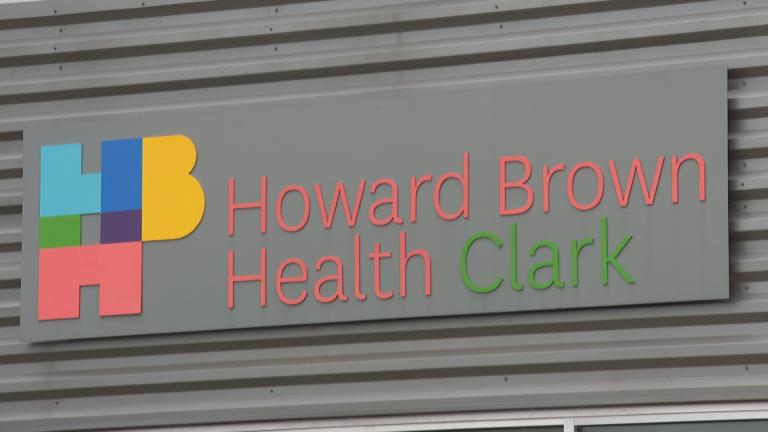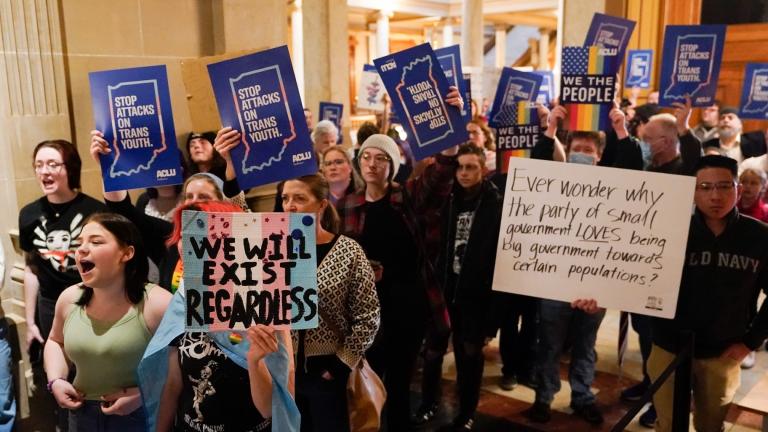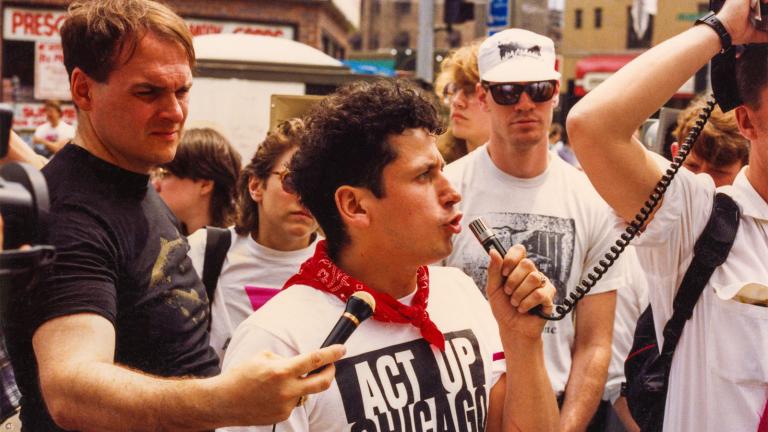Aly Garback said she’s felt empty since she was laid off six months ago.
She worked for the now defunct In Power program with Howard Brown Health. It provided specialized services for queer people facing violence.
“The hardest part about it is not even being laid off — it’s that the program doesn’t exist anymore and there’s not another program like it,” Garback said. “The Venn diagram of queer people and people who have experienced violence is a circle.”
The crisis services were vital to a population that might face harm in more traditional settings, Garback said. At In Power, she said, patients wouldn’t have to worry about not being taken seriously due to their gender. Many of the patients were trans.
“It’s important to have these pockets of safety where people can go,” Garback said. “They’re already so worried in the aftermath of being assaulted.”
Garback is one of the 61 unionized Howard Brown Health workers who were laid off in January.
Getting those 61 workers back on the job has been part of the fight for Howard Brown Workers United. In January, the union went on a three-day strike over the layoffs.
And now the union, represented by the Illinois Nurses Association, is currently negotiating its first contract. The union has been bargaining since November.
Katie Metos is vice president of external relations with Howard Brown Health.
They said the layoffs were due to a $12 million budget gap. A major cause of that is pharmacy revenue changes in the federal 340B program in which pharmaceutical companies sell drugs at a discount to federally qualified health centers, they added.
Read More: Employees at Howard Brown Health Continue Strike Over Recent Layoffs; CEO Says Cost Cuts Necessary
More protections for trans workers and patients is what Andrea Villanueva, a bargaining committee member for the union, would like to see in the new contract.
“It has been a scary time to either be a trans person or provide care to trans people,” she said.
Twenty states have passed laws or policies banning gender-affirming care for youth, according to the Human Rights Campaign.
Howard Brown said it saw an increase of 5,000 patients last year — 5% of that being out-of-state patients seeking gender-affirming care.
These attacks make unionizing an even larger priority for workers, said alithia zamantakis, a sociologist at Northwestern University who styles her name in all lowercase.
“Unionizing really offers the queer liberation movement the opportunity to win the demands we’re fighting for in the streets,” zamantakis said.
LGBTQ+ rights and labor rights have intersected since the dawn of Pride.
“Sylvia Rivera and Marsha P. Johnson, two trans women of color, fought at the Stonewall riots that gave birth to the LGBTQ movement, were fighting because Black and Brown and poor trans people were living in the streets, having to engage in sex work to survive, unable to find employment,” zamantakis said.
Howard Brown workers are accusing management of negotiating in bad faith, a charge they said is in front of the National Labor Relations Board.
In response, Metos said management is engaging in good-faith bargaining.
“We want to get to a new contract as quickly as possible and one that benefits both sides of the organization,” Metos said.
While it’s unclear whether Garback will be getting her job back, she is staying positive.
“I don’t think I’m hopeful that In Power’s going to come back, … but I am hopeful that the labor board will recognize some injustices have happened,” Garback said.







